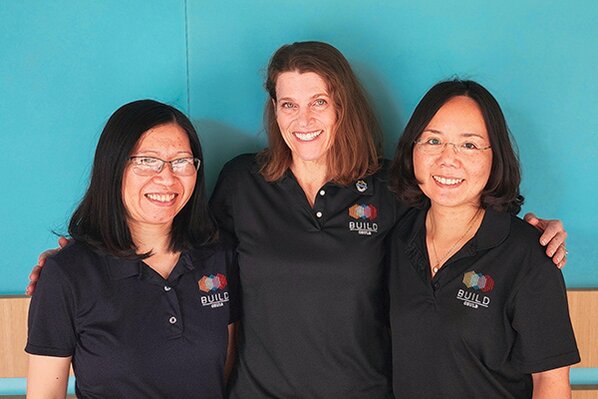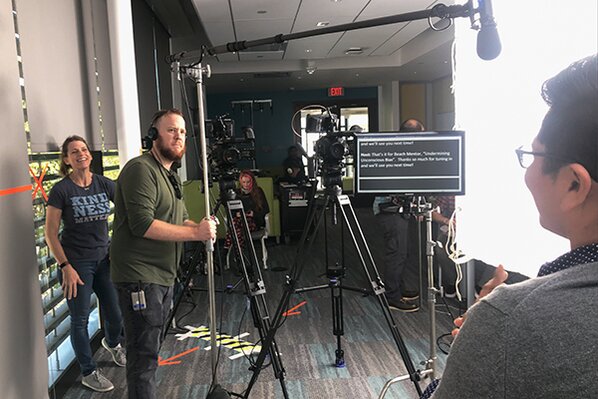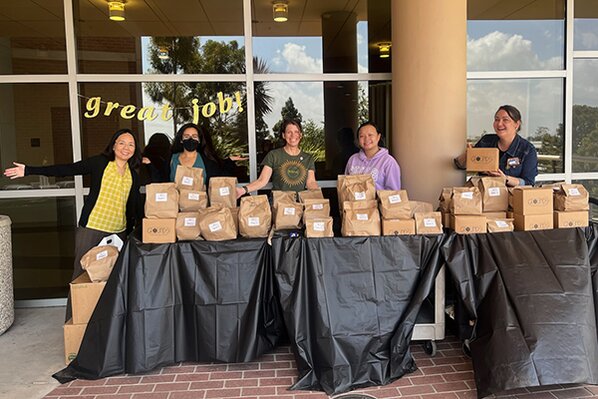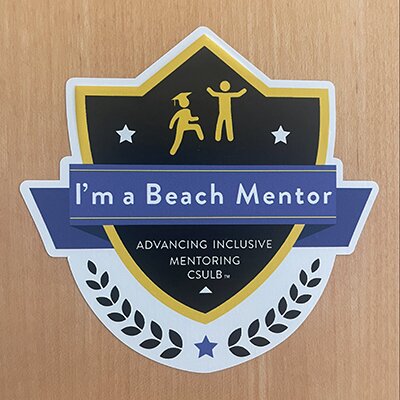The AIM Program: Mentor Training Tailored for Faculty Working with Undergraduates
By Christa Reynolds
Mentoring is often highlighted as an essential part of research training, but how does someone learn how to be a successful and supportive mentor? Through their Advancing Inclusive Mentoring (AIM) Program, researchers associated with the California State University, Long Beach (CSULB) BUILD program are helping ensure mentors have the skills and training they need to succeed.
Kelly Young, PhD, is a professor in the Department of Biological Sciences at CSULB, and one of the researchers who developed the AIM program.
This program, she explained, is more than a training on “how to mentor;” participants are expected to come with some knowledge of mentoring and a desire to learn more. In fact, on average, participants come to the AIM Program with about nine years of mentoring experience.
The series of six training modules incorporate case studies Young collected by interviewing CSULB students and faculty members. Including stories from “real experiences'' adds relevance to the facilitated discussion sessions led by trained AIM facilitators. This helps participants refine their techniques and learn new skills by connecting to mentor/ mentee stories. Through the facilitators’ guidance, they reflect on what it means to be inclusive and supportive mentors.

L to R: CSULB Professors Kim-Phoung Vu, Kelly Young and Panadda Marayong, worked together to develop the AIM Mentoring Program.
“Mentoring is transformative on both sides. Our mentees change us – transform us – over time, and that’s one of the most beautiful parts of being a mentor; having an incredible interaction with a mentee and they’re teaching us just as much about ourselves. What a privilege!” Young said.

A professional film crew works with the CSULB BUILD team to gather footage for the AIM Modules. Kelly Young (left) provides encouragement as Ian McCallum records sound (center) from Leilani Madrigal’s presentation (right).
Young, who leads the facilitator trainings, has developed a detailed AIM training manual. The training is adaptive, which allows facilitators to tailor discussions to participants’ skills and experiences, while progressively deepening their understanding.
If a group is already familiar with a discussion topic, instead of skipping past it, the facilitator might encourage them to look beyond the basics and broaden the discussion by bringing in their own ideas and research interests.
The program creates mentoring communities of practice at the universities, so that after going through the training, the mentors will have colleagues to whom they can turn for support and to discuss ideas.
“People want to dive into the idea of mentoring,” Young observed. “Some are saying, ‘Wow, I never even thought about training and mentoring, we need to talk about this more.’”
Just as mentors and mentees learn from each other, researchers who develop mentoring programs learn from one another. Young explains how the CSULB BUILD team was inspired by aspects of the “Entering Mentoring” program, run by the Center for the Improvement of Mentored Experiences in Research (CIMER) at the University of Wisconsin-Madison.
At CSULB, they worked to create a program tailored to mentoring undergraduate researchers, especially for first generation college students, she said.
Faculty mentors need to think about how to help their undergraduate mentees develop an identity as a scientist, while fostering a sense of belonging in the lab. Trainees might need help defining career goals, or even learning about what career options exist in research. “People want to do the best they can,” Young says of the mentors in her program, and the AIM Program is, “adding to their toolbox” by teaching new skills.

Members of the CSULB BUILD team (L-R: Panadda Marayong, Sara Velasco, Kelly Young, Cindy Su, Nicole Streicker) set up lunches for the participants in an AIM Program luncheon.

After they complete the AIM Program, faculty receive a sticker to put on their office door. This lets students and other faculty members know about their dedication to mentoring.
Since the AIM Program debuted in 2021, there have been over 600 participants, and it has been adopted by nine of the California State University (CSU) campuses. The institutions can access the program free of charge through the CSU system-wide Canvas site. Universities outside of the CSU system are also implementing the program, including Carnegie Science, Schreiner University and Oglethorpe University.
Young adds that some researchers have submitted research grants to gain funding to support their facilitators. Excitedly, Young added that the modules will be housed on the National Research Mentoring Network (NRMN) website by fall 2024, which should help them to reach even more participants and a nationwide audience.
One of the reasons Young has dedicated so much effort to developing this program is her desire to “pay it forward.” She explains how her own education benefitted from incredible mentors, including Dean Philip Bailey and Christina Bailey, PhD, at California Polytechnic State University, San Luis Obispo.
The Baileys encouraged her to apply to a doctorate program at Johns Hopkins University, across the country from her home in California.
“It was a big step, [and I] couldn’t have done it on my own or had the courage,” she said. The validation her mentors gave her was “priceless.”
Young stressed that this project has been a collaborative, team effort, and it’s “been awesome working with colleagues throughout BUILD, across the CSU’s, now NRMN and the CIMER group.” Along with CSULB BUILD principal investigators Kim Vu, PhD, and Panadda (Nim) Marayong, PhD, Young has been surveying participants. Overall, the results are positive, with participants saying the program is beneficial and that they are likely or very likely to make a change in their mentoring as a result of the AIM Program.
“[These results] speak so much [to] what we want to do: embracing the idea of being positive and inclusive mentors, and hearing lessons from others, and [helping mentors] reflect on their own research program,” Young said.
Learn more about the AIM Program
Read “Faculty Mentor Training to Change Mentoring Practices at a Diverse R2 University” by Young, Marayong, & Vu, 2022
The Coordination and Evaluation Center at UCLA is supported under award number U54GM119024.

Grow Together.
